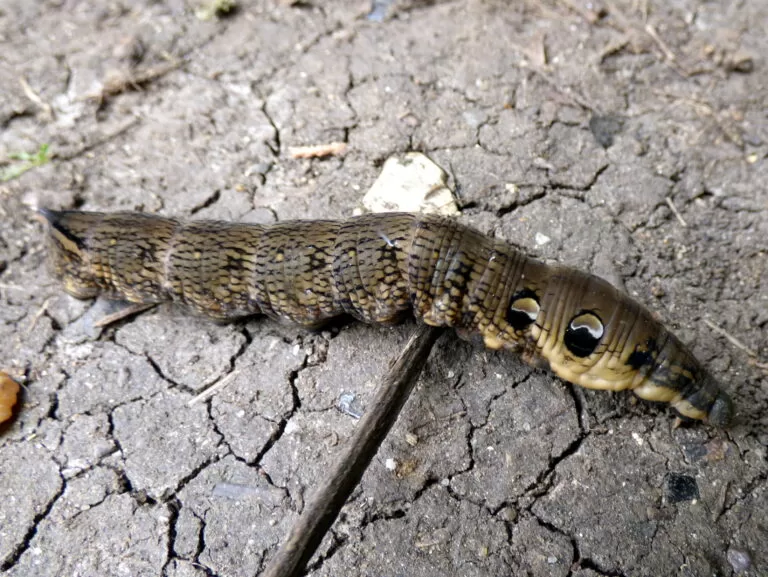In Argentina’s quiet town of Santa Fe, 46-year-old Lujan Eroles was shocked to find a peculiar creature in her garden, initially mistaking it for a snake. The 10-centimeter-long creature turned out to be a master of mimicry, resembling a serpent.
Eroles, astounded by the find, shared her experience, saying, “I have never seen anything like it. It was just like a snake, and its eyes were so strange.” Fearing it might be poisonous, she filmed the creature, sparking discussions online about its mysterious identity.

Concerns about encountering a venomous creature heightened the intensity of the moment. Eroles posted a video seeking answers, leading to speculations about the creature’s origin. Experts eventually identified it as a caterpillar from a rare Central American moth species, possibly an Elephant Hawk-Moth Caterpillar.
The caterpillar, lacking typical defensive mechanisms, employs mimicry as a survival strategy. Sporting large “eye markings” behind its head, it tricks predators into perceiving it as a dangerous snake, showcasing nature’s ingenious ways of adaptation for survival. This chance encounter highlights the fascinating biodiversity and adaptive strategies that exist in the natural world.





